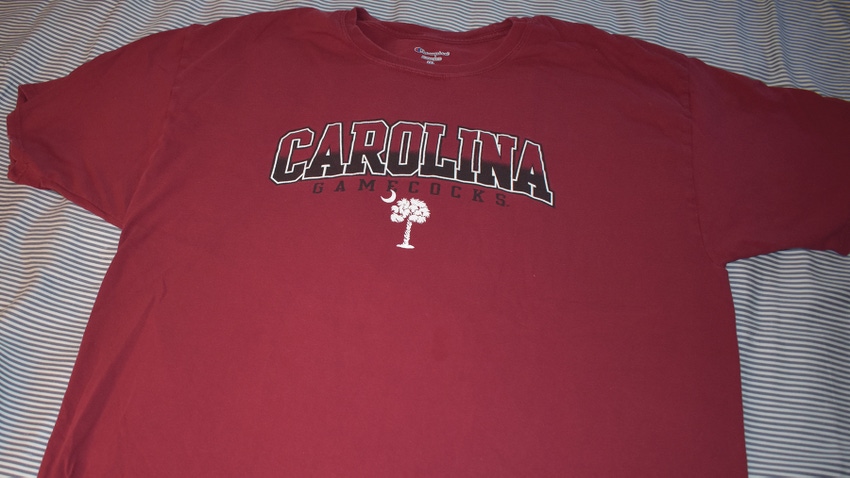
I’ve long preferred clothes made of cotton. That’s especially true with T-shirts, which, perhaps when all things are considered, are my garment of choice. I wear them to sleep in, to work outside the house, to workout at the gym and quite often, to sporting events.
While working for a magazine covering textile manufacturing in the late 1990s and early 2000s, I had the opportunity to tour many cotton mills. I gained an appreciation of what it takes to make a cotton garment. I also enjoyed the smell of cotton being processed.
I have an extensive collection of T-shirts, enough to fill four drawers in my dresser. The vast majority — some four dozen or so — are assorted iterations of the University of South Carolina Gamecocks, my alma mater…mostly garnet, some black and one or two whites.
Perhaps it’s a generational preference, but I’m relatively old-school, and prefer some substance to my T-shirts. But over the last several years, good, sturdy, all-cotton T-shirts have been increasingly hard to find. That’s particularly true with licensed products for college and pro sports teams.
The only pro sport I follow is Major League Baseball, with the Atlanta Braves and Colorado Rockies being my favorite teams. But finding a durable T-shirt with some heft at the stadium of either team is impossible. That’s probably true throughout the sport. Lightweight cotton T-shirts have become the norm, and many are blended with (ugh) polyester, creating some kind of hybrid product that clings to your torso like Saran wrap.
This may come across as a rant, but so be it. I can’t abide flimsy T-shirts made of some type of synthetic fiber, even if they are blended with cotton. I prefer heavyweight, all-cotton T-shirts for all purposes. But over the past several years, these wardrobe staples have become less robust.
In the mid-70s, Hanes introduced its Beefy-T T-shirts. Gildan also makes a similar product. These have long been a favorite. However, the companies that produce licensed apparel for sports teams rarely use these types of shirts anymore. So why are today’s T-shirts so thin? My view is that they are cheaper to make. The quality is definitely poorer. Maybe manufacturers are just catering to the preferences of millennials. My attempts to obtain input on the matter from a major T-shirt manufacturer went unanswered.
Of course, there are companies who will custom manufacture a heavyweight T-shirt. That may be a route I have to take in the future. I’m certainly willing to pay a few dollars more for a proper T-shirt.
More cotton fiber is needed in T-shirts. A heavyweight T-shirt is generally considered to be 6-ounces or more per square yard. Lightweight (flimsy) T-shirts are in the 4-ounce range. Medium weight, which I consider acceptable, is in the 5-ounce range. I yearn for the days when heavier T-shirts were the norm.
Read more about:
Upland CottonAbout the Author(s)
You May Also Like






